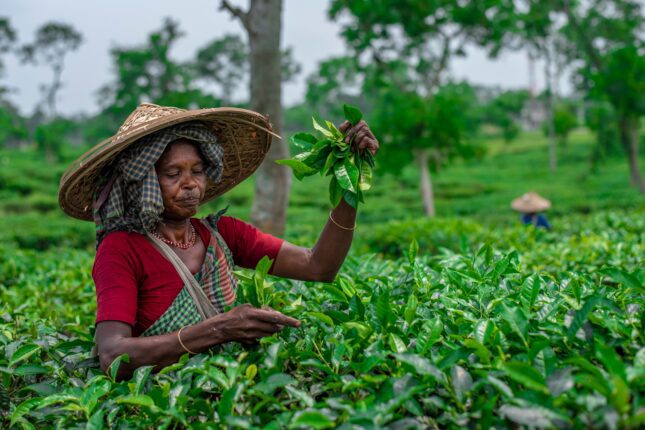-
New Security Brief | Pioneering Solutions: Climate Finance, Gender Equity, and Sexual and Reproductive Health Services
October 28, 2024 By Wilson Center Staff
This article is adapted from “Pioneering Solutions: Climate Finance, Gender Equity, and Sexual and Reproductive Health Services”
A warming world is leading to new challenges for communities and countries around the globe. The significant impacts of climate change on global health, and on women and girls, are well-documented. Yet despite the evidence, funding for climate responses that focus on health or gender remains relatively low. In the rare instances where climate finance provides funds to improve health services, sexual and reproductive health (SRH) services—which are critical to women’s full participation in society and decisionmaking—are largely neglected.
In a new policy brief, “Pioneering Solutions: Climate Finance, Gender Equity, and Sexual and Reproductive Health Services” the Wilson Center’s Environmental Change and Security Program and Maternal Health Initiative explore the relationships between climate finance, gender equality, and sexual and reproductive health, and identify opportunities for including SRH services in climate financing mechanisms and projects.
Pioneering Solutions: Clima… by The Wilson Center
Women and girls face heightened threats to their health, safety, and livelihoods as a result of climate change. For example, the impacts of climate change on agriculture and water availability disproportionately hurt women. Globally, women and girls are responsible for fetching up to 80% of the water for households who lack direct access to water sources. Women comprise about 43% of the agricultural labor force in developing countries, and up to 80% in some African countries.
During extreme weather events such as flooding, storms, or wildfires, damage to health infrastructure can leave women without access to adequate maternal and reproductive health services. For example, Typhoon Haiyan limited access to antenatal care in the Philippines, while flooding in Bangladesh reduced the availability of contraceptives. Women’s poor maternal health outcomes reached an all-time high during recent floods in Pakistan, and a global study in Nature in 2024 found links between flood exposure and pregnancy loss.
In the face of these challenges, evidence suggests that providing SRH services can boost climate change resilience for women, their families, and their communities. In western Tanzania, for instance, the Tuungane Project works to advance the health of communities, forests, and fisheries. Since it was launched in 2012, the project has responded to 150,000 requests for reproductive health services and has reduced maternal and neonatal deaths by upgrading health clinics. A 2018 study of the project found a strong positive correlation between access to family planning, maternal and child health care, and most aspects of climate resilience.
Despite these links, major climate adaptation funds do not yet fund SRH-specific programming. Awareness of the connections between climate, gender, and health is undoubtedly growing—adaptation finance portfolios are increasingly incorporated these links, and 60 percent of National Adaption Plans now mention aspects of SRH. But this awareness has yet to translate into SRH-specific services being meaningfully integrated into projects seeking financing from the major adaptation funds. Future climate funding could be made more impactful by bridging the gap between gender equity, sexual and reproductive health services, and climate resilience.
“Pioneering Solutions: Climate Finance, Gender Equity, and Sexual and Reproductive Health Services” was made possible through the generous support of the Population Institute.
Sources: Arrow, Environmental Challenges Journal, Nature Communications, PLOS Currents, Science Direct, Women Deliver.
Photo credit: Rural woman picking tea leaves—Bangladesh, June 2022, courtesy of Jahidul-hasan / Shutterstock.
 A Publication of the Stimson Center.
A Publication of the Stimson Center.



